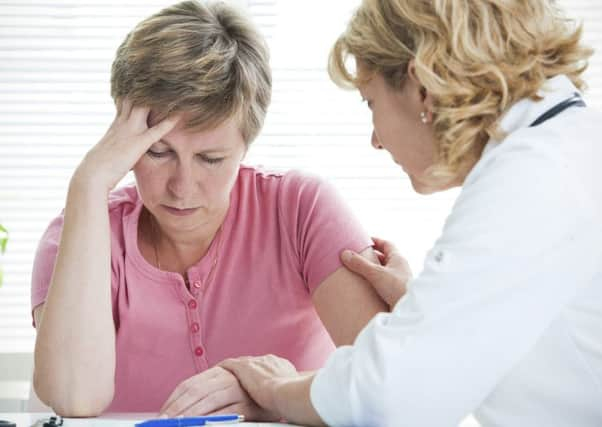Menopause therapy treatment more likely to get breast cancer


Around one in ten women in their fifties takes hormone replacement therapy (HRT) to cope with symptoms such as hot flushes and migraines, as the medication tops up the oestrogen levels reduced by the menopause.
Scientists found that using combined HRT for five years increased the risk of breast cancer by 2.7 times compared to those who had never taken it after analysing 39,000 women.
Advertisement
Hide AdAdvertisement
Hide AdThere has been major debate over the health consequences of HRT, prompting some women to avoid the treatment due to evidence of an increased risk of breast, womb and ovarian cancer as well as heart attack and stroke.
Scottish experts found many patients and GPs were afraid to prescribe HRT due to the negative research, in a study published last year.
The latest research from the Institute of Cancer Research, in London, is likely to reignite the discussion as it suggests previous studies could have underestimated the breast cancer risk by up to 60 per cent because they did not update information on women’s use of HRT over time or take into account when they actually began the menopause.
Professor Anthony Swerdlow, study leader from the Institute of Cancer Research, said: “Our research shows some previous studies are likely to have underestimated the risk of breast cancer with combined oestrogen-progestogen HRT. We found that current use of combined HRT increases the risk of breast cancer by up to threefold, depending on how long HRT has been used.
“Our findings provide further information to allow women to make informed decisions about the potential risks and benefits of HRT use.”
There are two main types of HRT, one containing just oestrogen and the another which is a combination of oestrogen and a progestogen known as ‘combined HRT’.
The team found the risk of breast cancer increased with the length of use, as women who had used combined HRT for over 15 years were 3.3 times more likely to develop breast cancer than non-users. However, the risk level returned to normal a year or two after women stopped using HRT.
Women using oestrogen-only HRT saw no overall increase in breast cancer risk compared with women who had never used HRT.
Advertisement
Hide AdAdvertisement
Hide AdMary Allison, Scotland director at Breast Cancer Now, which funded the research, said: “Whether to use HRT is an entirely personal choice, which is why it’s so important that women fully understand the risks and benefits and discuss them with their GP.”
The study is published today in the British Journal of Cancer.